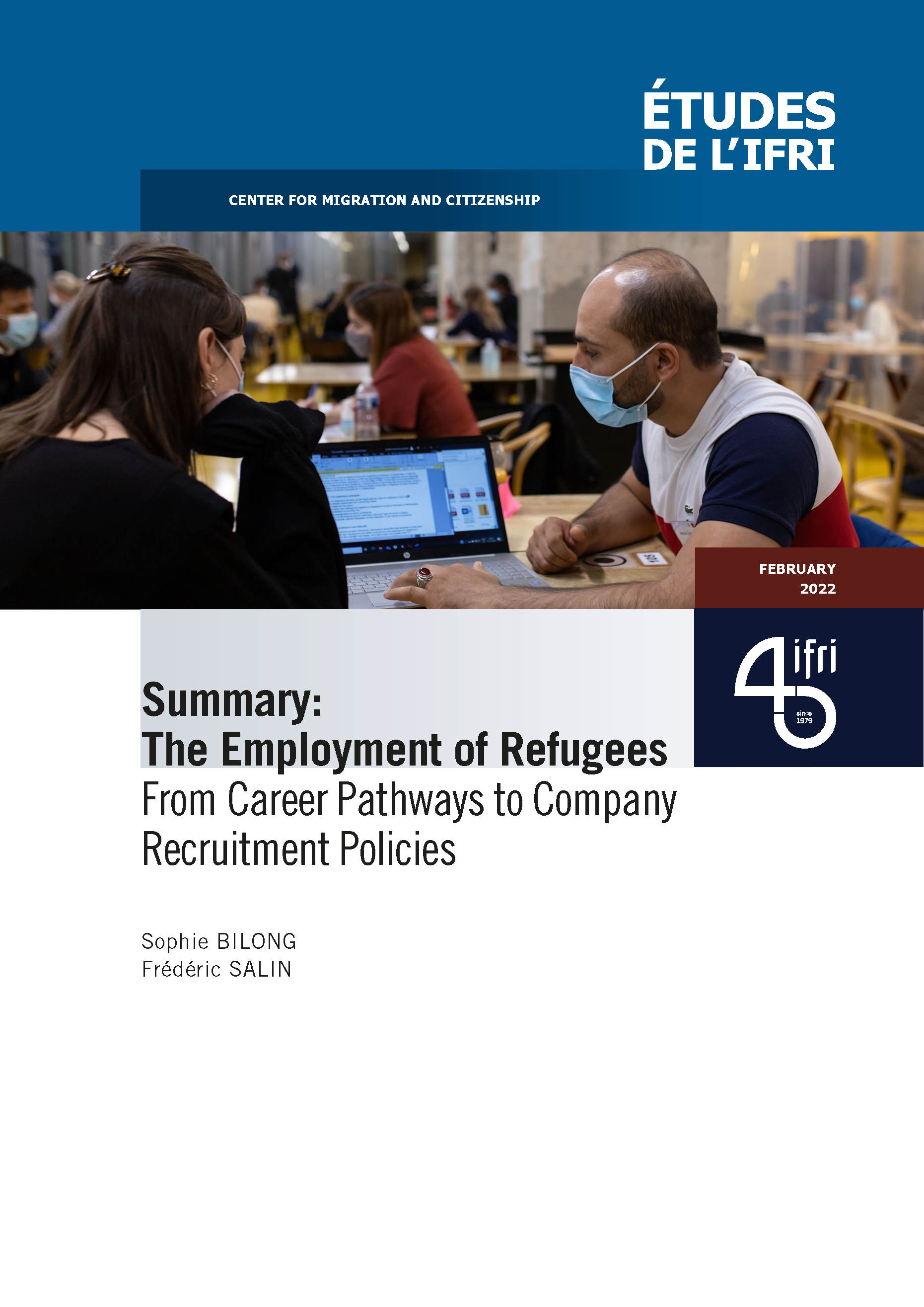The Employment of Refugees – From Career Pathways to Company Recruitment Policies

The issues of employment and work for refugees have received increasing attention from both the political, NGO and economic spheres in France since 2017, but few studies have yet to address this subject. This study was born out of cooperation between the Observatory on Immigration and Asylum and the “Work with Refugees” collective, that brings together several French NGOs supporting refugees and asylum seekers into employment.

The authors used multifaceted methods that combine statistical analysis, interviews and focus group discussions. The statistical analysis focuses on the socioprofessional pathways of refugees and their working conditions, taken from the Longitudinal Statistical Survey on the Integration of Newcomers (Elipa) conducted by the Ministry of Interior. The interviews were conducted with human resources (HR) and corporate social responsibility (CSR) managers from 18 companies committed to integrating refugees in the labor market, or with tangible experience of recruiting them. Additionally, we organized group discussions with representatives from NGOs working with exiles and refugees who shared their experience of seeking employment in France.
The Elipa survey highlights that 42% of refugees were employed, 22% unemployed, 19% inactive and not in education, and 17% were in education a year after receiving their residence permit. The survey shows also a higher employee rate compared to the country of birth and professional downgrading. The jobs of newly arrived refugees are concentrated in low-skilled occupations with low wages and in the construction, building and hotel, retail and catering sectors. Their working conditions are mainly unstable, unsatisfactory and precarious.
The authors analyzed measures implemented by the private sector to promote the integration of refugees into the French labor market. The managers interviewed shared their analysis of the trends at work in their company, and explained the ways in which their company can engage to integrate refugees.
In addition to the internal processes, which are still rarely explored in studies on refugee employment, the authors highlighted broader issues regarding access to employment that are not solely linked to companies’ strategies and procedures such as access to language tuitions, administrative hurdles and access of asylum seekers to labor market. Finally, this study makes a series of recommendations to companies, NGOs and the authorities to improve the labor situation of refugees.
Download the full analysis
This page contains only a summary of our work. If you would like to have access to all the information from our research on the subject, you can download the full version in PDF format.
The Employment of Refugees – From Career Pathways to Company Recruitment Policies






